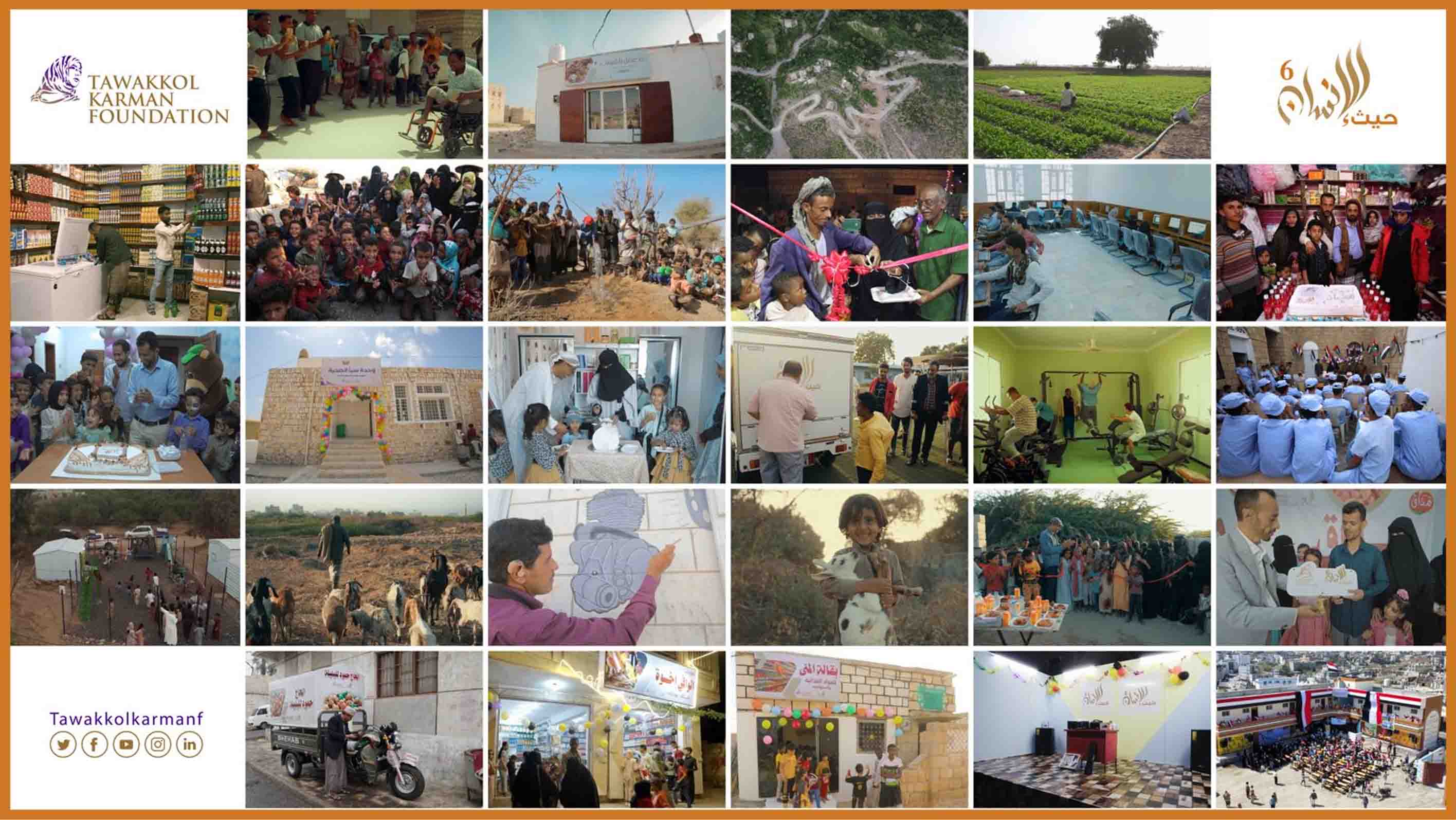The beginning of "Haith Al-Insan" program was six years ago, embarking on a journey full of experiences, challenges, and reflections, and as described by one viewer, it was "dear to the soul" - it neither hurt nor offended.
Through the program, funded and supported by Tawakkol Karman Foundation, people touched upon hidden stories, learning about the lives of Yemeni individuals, exchanging ideas and experiences formed during their journey. It grew, diversifying its projects, opening more than 170 doors of hope over 6 years, embedding itself in the hearts of people.
"Haith Al-Insan" program endeavored to be close to the people, to listen to them, and to present a different image of dreams, seeking a new meaning for life.
The program did not settle for describing reality and presenting it, nor did it say what is usually said, but rather personalized and delved into the suffering of Yemenis, attempting to provide solutions through tangible and sustainable means. It aimed to shed light on humanitarian issues and cases that are part of the Yemeni suffering, revealing their magnitude and impact, drawing attention to them in new ways.
Season 6
In its sixth season, "Haith Al-Insan" program implemented 27 projects in 25 Yemeni regions. In the first episode of the season, the program traveled to Lahj Governorate to Milad’s farm, where a young man's illness forced his father to sell the farm's assets, which was once lush green. This became the first story of the program, and when his project was chosen, his young children were gathered to see that their father was not left alone in his ordeal, witnessing the reading of the first message.
After "Haith Al-Insan" program rehabilitated Milad’s land and brought life back to it, the program's crew traveled to another area, to "Jarah" region in Al Masarakh Directorate, Taiz Governorate, where project coordinators arrived, gathering the locals and informing them that Tawakkol Karman Foundation would undertake the paving and rehabilitation of "Jarah" road, which had not been paved for decades in the area, and the residents were waiting for it to become passable, having walked on foot.
The program then ascended three thousand and seventy meters above sea level to witness the tragedy that befell "Afaf" at the top of Jabal Sabr, where she was awaiting the establishment of a shop for her to buy what her town's residents needed. She had a small shop, and after the arrival of "Haith Al-Insan", her situation and that of her family changed.
From the peaks of Jabal Sabr to the shores of the Arabian Sea, there awaited the program's team in Al Mukalla the Republic's champion in bodybuilding for two decades, who was forced to work at sea, chasing fish aboard a small fishing boat. "Haith Al-Insan" followed and supported him to return to his old hobby and former field, providing him with a suitable place to produce new Yemeni champions.
The program visited the "Iqlim Saba University", where a new project was initiated. Last year, the same university witnessed the opening of an archaeological museum in the city of history, and in the sixth season, a fully equipped computer lab was opened.
In the same city, children with walking and speech difficulties frequented a center with few tools. "Haith Al-Insan" intervened and provided fifty children with the training devices they needed, restoring their movement, and enabling them to walk with better confidence.
In displacement camps, "Haith Al-Insan" was present as usual in every season, setting up a playground for children, and opening a shop for a woman living in the "Noor Camp" to provide a stable source of income for her family, tired of moving between displacement locations.
The camp set up on the outskirts of Al Mukalla was central for "Haith Al-Insan" program. A sewing workshop was established for women, and a livestock project was launched for men, all simultaneously, along with many different projects targeting 25 Yemeni regions.

